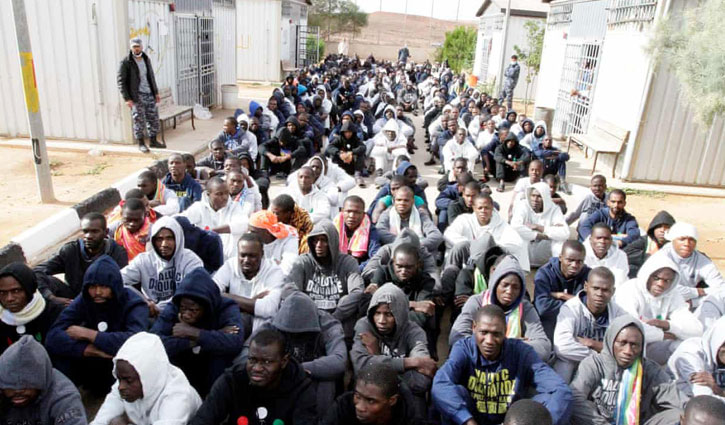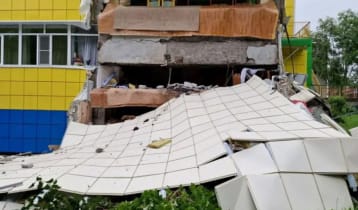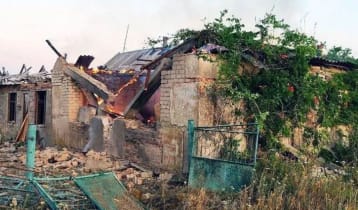Migrants detained in Libya for profit, leaked EU report reveals
8 || risingbd.com

The EU has admitted in a leaked report that it cannot monitor the Libyan coastguard and that the detention of migrants is a “profitable business model” for Libya’s government, with whom it has recently renewed a controversial deal to stem migration to Europe.
The report details the fate of refugees fleeing for Europe who have been picked up by the Brussels-backed coastguard and put in official and unofficial detention camps in dire and dangerous conditions.
Widespread human rights violations, deaths, unexplained disappearances, bribery and corruption are cited in the 13-page paper, which still praises the “progress achieved” in reducing the numbers leaving the Libyan coast for Europe.
Under a recently renewed multimillion-euro deal, the EU and Italy provide the Libyan coastguard with cash, training and boats to intercept migrants in the Mediterranean, as part of an attempt to block people from European shores.
The decision was made last month to continue with the deal, and provide an extra €5m in funding, despite an admission in the EU paper that “conditions for migrants in Libya have deteriorated severely recently due to security concerns related to the conflict and developments in the smuggling and trafficking dynamics and economy, in addition to the worsening situation in the overcrowded detention facilities”.
The leaked EU document, marked Limite (restricted), of which only an almost entirely redacted version has been published, lays out the “severe” consequences in an internal call for “immediate action” to save the lives of those caught up in the system.
The document, written by the presidency of the EU council for a “high-level working group on asylum and migration”, reports:
There is no record of the numbers of detention camps but estimates of the number of official and unofficial facilities range from 17 to 35, some of which are said to be run by militia. More than 5,000 people are being held and about 3,700 of those are located in “conflict areas”.
A number of the detention centres “are alleged of having links to human trafficking” and “there is no proper registration system for migrants”. “Serious cases of corruption and bribery in the centres have been detected,” the EU paper says.
EU officials are not allowed onshore to monitor the makeup or activities of the Libyan coastguard to the “security challenges”.
The government in Libya has failed to improve the situation in the camps or deal with the regular reports of “disappearances” of people picked up by the Libyan coastguard. “The government’s reluctance to address the problems raises the question of its own involvement”, the paper says.
The “reluctance of officials to cooperate is closely linked to the widely reported human rights violations that take place in the detention centres and to the fact that the facilities form a profitable business model for the current Libyan government”. According to humanitarian organisations, detainees are coerced by camp officials into asking relatives to pay for their release.
At least 53 men, women and children were killed and 130 injured in July when a detention facility near Tripoli, in which 644 migrants and refugees had been detained, was bombed. The bombed-out centre was then swiftly refilled with people provided by the Libyan coastguard.
The detention camps “suffer from overcrowding and the conditions are poor. In particular, there are difficulties in relation to sanitary facilities and food and water supply. Severe human rights violations have been widely reported”.
The EU has been pressing the Libyan government to stop the arbitrary detention of migrants. The leaked paper, distributed to key officials in September, notes that the Libyan authorities had agreed to close three detention centres near Tripoli but “so far, any concrete panning has not followed this promise”.
The reduction in migration has instead been celebrated in Brussels, with the number of people arriving in Italy from Libya dropping from more than 107,000 in 2017 to about 13,000 in 2018, and to just 1,100 by August this year. The Libyan coastguard is said to have intercepted 5,280 people as of August 2019.
The European parliament’s civil liberties committee is due to interrogate EU officials on Thursday, with the Labour MEP Claude Moraes seeking full disclosure of the human cost.
Source: theguardian.com
Dhaka/Nasim
risingbd.com



















